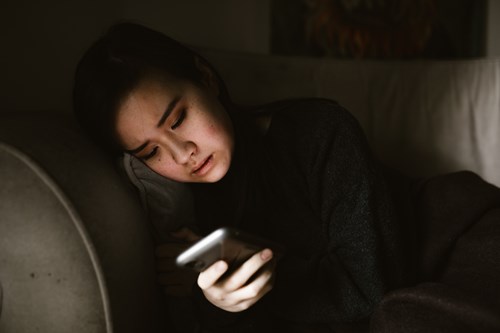Here’s a recap of the most recent efforts from the U.S. Department of Health & Human Services (HHS) to address social determinants of health (SDoH) including mental health, housing insecurity, and peer support among college students.

A call-to-action for adolescent health and wellbeing
HHS has announced a new initiative, Take Action for Adolescents: A Call to Action for Adolescent Health and Well-Being, to encourage collaborative efforts around youth health and well-being.
“Young people today are facing significant challenges to their health and well-being,” said Admiral Rachel Levine, M.D., assistant secretary for health, in a statement. “We are committed to working closely with our allies and partners across the country to support improvements in adolescent health and well-being.”
The initiative was developed using both research and direct feedback from adults and youth, including nationally recognized adolescent health experts. The model outlines an overall vision, the key principles, eight goals, and the initial action steps.
The program aims to:
- Address disparities to advance health equity
- Increase youth agency and youth engagement
- Ensure access to safe and supportive environments
- Increase collaboration across systems
- Expand access to health care and human services
- Strengthen training and support for caring adults
- Improve health information and health literacy
- Support and leverage research
Becerra to lead council on homelessness; Funding, accelerator to provide housing support
In another recent announcement, HHS shared several efforts targeting the homelessness crisis:
Secretary Becerra has been named the chair of the U.S. Interagency Council on Homelessness, a group of 19 federal agencies focused on coordinating the federal homelessness strategy and supporting state and local efforts targeting homelessness.
The agency also announced that, through the Administration for Children and Families (ACF), it has awarded nine grants, totaling $2.1 million toward support services for families living in affordable housing as well as 11 grants, totaling $4 million, for runaway and homeless youth prevention.
Lastly, through the Administration for Community Living, and the U.S. Department of Housing and Urban Development (HUD), HHS announced the launch of the Housing and Services Partnership Accelerator, which will support states with Medicaid programs with developing or expanding housing-related supports and services.
“Stable housing is essential to the health and well-being of individuals and families. Preventing and ending homelessness requires a collective effort to understand and address its root causes such as housing affordability. We must also channel our efforts to address the health and social needs of many who are unhoused, including behavioral health,” said HHS Secretary Xavier Becerra in the announcement. “The U.S. Interagency Council on Homelessness is doing critically important work, and I am honored to take on the role of chair. We will continue to do everything in our collective capacity to dramatically reduce homelessness in this country.”
Surgeon General to make nationwide college tour to promote peer connection
The third announcement from HHS this week stated that the Surgeon General of the United States, Dr. Vivek Murthy, will be making a national “We Are Made To Connect” tour throughout November, travelling to colleges across the country to encourage students to prioritize connection with one another in an effort to improve their health and well-being.
The tour comes amid ongoing concerns regarding increasing rates of loneliness among college students and its significant impact on both mental and physical health, which Dr. Murthy underscored in his Surgeon General’s Advisory on Our Epidemic of Loneliness and Isolation earlier this year.
During his visits to seven campuses, Dr. Murthy will encourage students to participate in the 5-for-5 Connection Challenge, which challenges them to take five actions for five days that express gratitude, offer support, or ask for help from others.
“I am thrilled to embark on the We Are Made to Connect Tour and speak to young people about healthy relationships and their impact on mental health. Loneliness is a widespread national health problem–one that impacts young Americans at surprisingly high rates,” Dr. Murthy in a statement. “Just like exercise and nutrition, our relationships with one another are fundamental components of our overall health and well-being. The tour and connection challenge will help students learn how to better incorporate moments of connection into their daily lives.”

